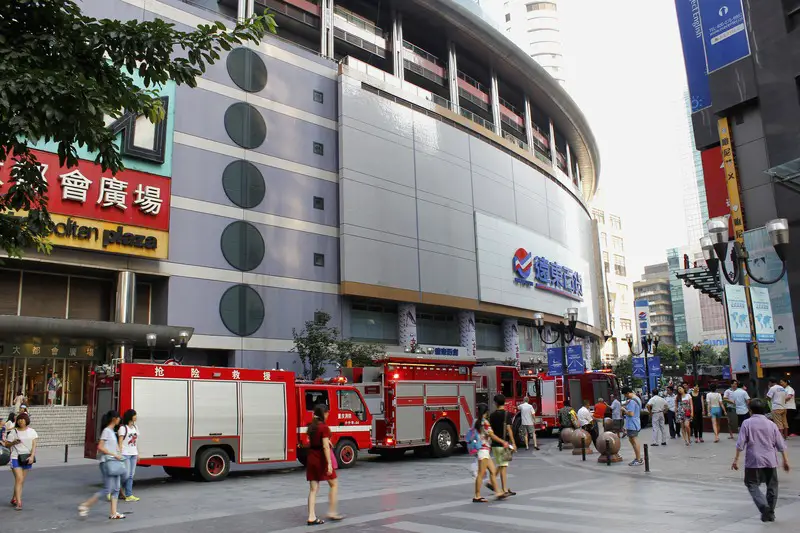A blaze erupted in a shopping center in Zigong, a city in China’s southwest, on the evening of Wednesday, July 17, 2024, leading to the deaths of 16 individuals. The fire was initiated in a 14-story commercial structure, triggering a quick response from fire and rescue teams who rescued 75 individuals. Construction work is suspected to be the cause of the fire, although the precise cause is still being investigated.
The fire started just after 6:00 in the evening at the busy shopping center, which contains a department store, offices, eateries, and a cinema. State media reports revealed that the fire rapidly spread through the building’s lower floors, producing heavy black smoke that poured out of windows and covered the entire building.
Social media posts documented the intense scene, with images of flames reaching into the sky as firefighters combated the fire using water jets and drones.
Li Wanyu, a local resident who was shopping in the mall’s subterranean grocery store when the fire erupted, shared her experience, “At first, I thought it was just a drill when the staff started evacuating us,” she said. “I didn’t realize what was happening right away. I felt confused rather than scared and exited the building with everyone else.”
Firefighters and rescue teams worked relentlessly to contain the fire and rescue those stranded in the building. Despite their efforts, the fire required almost 10 hours to completely extinguish. Local media reported that 75 individuals were safely evacuated during the rescue operations.
The Zigong mall fire is part of an alarming trend of escalating fire incidents across China. According to Li Wanfeng, a representative of the National Fire and Rescue Administration, fire fatalities have seen a 19% increase in the first few months of this year compared to the previous year. “The number of fires in public places such as hotels and restaurants rose 40%, primarily due to electrical or gas line malfunctions and careless behavior,” Li mentioned.
In January, a fire caused by unauthorized welding in the basement of a commercial building in Jiangxi province claimed the lives of 39 people. In February, an additional 15 lives were lost in a residential building fire in Nanjing, which was instigated by an electric bike in an attached parking lot.
Fire hazards continue to pose a serious issue in China, with systemic factors contributing to the problem. The inefficiency and corruption of inspection offices, influential property managers who overlook safety violations, and the pressure to sustain rapid economic growth often result in compromised fire safety regulations. The Fire Control Law of the People’s Republic of China, updated in 1998 to offer more detailed guidelines on inspections and enforcement, still lacks the mechanisms to ensure effective implementation at the local and provincial levels.
The Chinese government has attempted to enhance fire safety by integrating fire control plans into urban planning, mandating that construction projects undergo thorough fire control design review and approval, and requiring fire safety checks for public venues before their opening. However, these steps have proven inadequate in preventing the rise in fire incidents.











